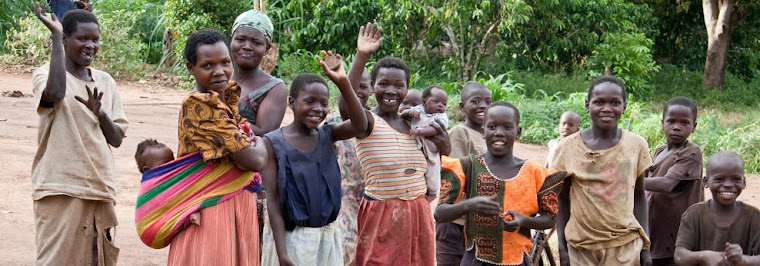Initially created by a PCV serving in Mongolia, the Peace Corps Challenge challenges one to live as a Peace Corps volunteer would. The purpose of the project is to give those living stateside/in the western world a taste of what life is like in the Peace Corps in developing countries. In no way is it indicative of any one PCV's experience; the project merely challenges the participant to experience a different way of living for a week, and to live outside of one's comfort zone. I've included the rules for the Challenge adapted by PCV's in Kenya below, as it most logically mirrors the realities of living in Uganda. I encourage you to take on the Challenge, and report back to me your thoughts. Enjoy!
The Challenge: Kenyan RulesFor one week, you are asked to give up some of the everyday conveniences that we PCV's and our communities do without. The levels are arranged from more common to less common living conditions of PCV's in Kenya while also taking into account the difficulty of completing the challenge in the U.S. So while none of us here have a car, it ranks quite high in the challenge as it is much more difficult to do without one in the States. Kenya is known for its beautiful safaris in which you can spot the “The Big Five” animals, for which we’ve named our levels (they are in order of rareness in the Masai Mara).
First, decide which month you want to participate. The first week of the month you choose (the 1st-7th) will be when you need to forgo certain items.Next, look through the list below and decide which one of the five levels of difficulty you want to take on, and which items you will abstain from (although your items may come from multiple difficulty levels, you are only trying to complete one level...the most difficult you think you can manage).Finally, let us know that you’ve taken up the challenge by completing the Accept the Challenge section of the general “Live Like a PCV” at Live Like A PCV. Lion: Difficulty Level I (choose two) - Forgo the use of the microwave.
- No checks, no debit cards, or no credit cards all week. Cash only.
- No washing machine or dish washers - plus you must attempt laundry by hand once.
- Cook dinner by candlelight.
- Keep a journal or write a handwritten letter to a friend about your experiences this week.
Buffalo: Difficulty Level II (choose two, plus one item from Level I) - No television - you can, however, listen to the radio and read local newspapers.
- Baths or showers are allowed only every other day - you can wash yourself at the sink with a cloth as much as you want.
- No fast food- or restaurant-eating - this includes no coffee joints, bars, and delivery services.
- Internet use only every other day - you can use the internet for your job, but you're on the honor system here.
- Start and finish a book this week.
- Buy your fruits and vegetables for the week locally.
- Wild Animals! You can't leave your yard between 7:30 PM and 6:30 AM unless you're accompanied by 3 or more people.
Elephant: Difficulty Level III (choose two, plus one item from Level II or two items from Level I) - You can use your toilet but you must manually fill the tank or do a bucket flush (turn off the water to the toilet.)
- Lack of temperature control - no heater or air conditioner in your house/car.
- Greet everyone you know with a handshake and genuine questions about their family, home, and health.
- You can only use one burner on your stove (no oven).
- Ration your water to only 10 gallons a day for cooking, drinking, bathing, and washing clothes.
- Teach someone the 4 ways that HIV is transmitted.
Leopard: Difficulty Level IV (choose two, plus one item from Level III, or two items from Level II, or three items from Level I) - Reduced living space - you may only use your living room, bathroom, and kitchen.
- Bathe only once this week - you may wash yourself with a cloth at the sink everyday.
- No driving - you can use public transport, a bicycle, or simply walk.
- Internet only once this week - again, you can use it for your work only.
- Power outage - throw a 6-sided dice everyday to determine how many hours you will be without power between the hours of 5:00pm -11:00pm (turn off your power breakers).
Rhino: Difficulty Level V(choose one item from each Level) - No running water in your house - you must fetch it from somewhere else (e.g. a neighbor’s house).
- No English for the entire week - you can speak English only at work.
- No toilet use in your house - you must go somewhere else or improvise.
- No refrigerator use.
- Spend the whole weekend in one room of your house - using no electricity, you are allowed 3 books and 1 full battery life of your computer (no recharging).
Questions for Reflection: * How did you find the Challenge? Difficult or easier than you anticipated?
* What surprised you about most about participating in the Challenge?
* What did the Challenge teach you about how people in developing countries live?



